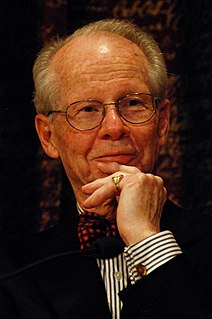A Quote by Adena Friedman
It's important to experience as many parts of an organization as you can - because some day, you may have the chance to lead that organization.
Related Quotes
I think it's possible for me to approach the whole problem with a broader scope.When you look at something through an, an organizational eye, whether it's a, a religious organization, political organization, or a civic organization, if you look at it only through the eye of that organization, you see what the organization wants you to see. But you lose your ability to be objective.
The distance between number one and number two is always a constant. If you want to improve the organization, you have to improve yourself and the organization gets pulled up with you. That is a big lesson. I cannot just expect the organization to improve if I don't improve myself and lift the organization, because that distance is a constant.
You simply can't be tentative in a startup. You have to go for it at every chance you get. And if the leader of the organization is anxious, his or her fear pervades the organization. Everything comes from the top in a company. So if you are starting a company or building one, face your fears and move past them. It's critically important to your company.
The Alliance and NATO is two different things. France is a member of the Alliance. NATO is an organization not mentioned in the North Atlantic Treaty, has been built up in the course of history, in the course of history France has left that organization. Normally the Alliance has been lead by consent, building up consensus on important issues of questions, in many instances over the last 30 years that I have followed events closely. In many, many cases was being done under the spiritual guidance of the American President, that is true, but sometimes also at the guidance of others.



































